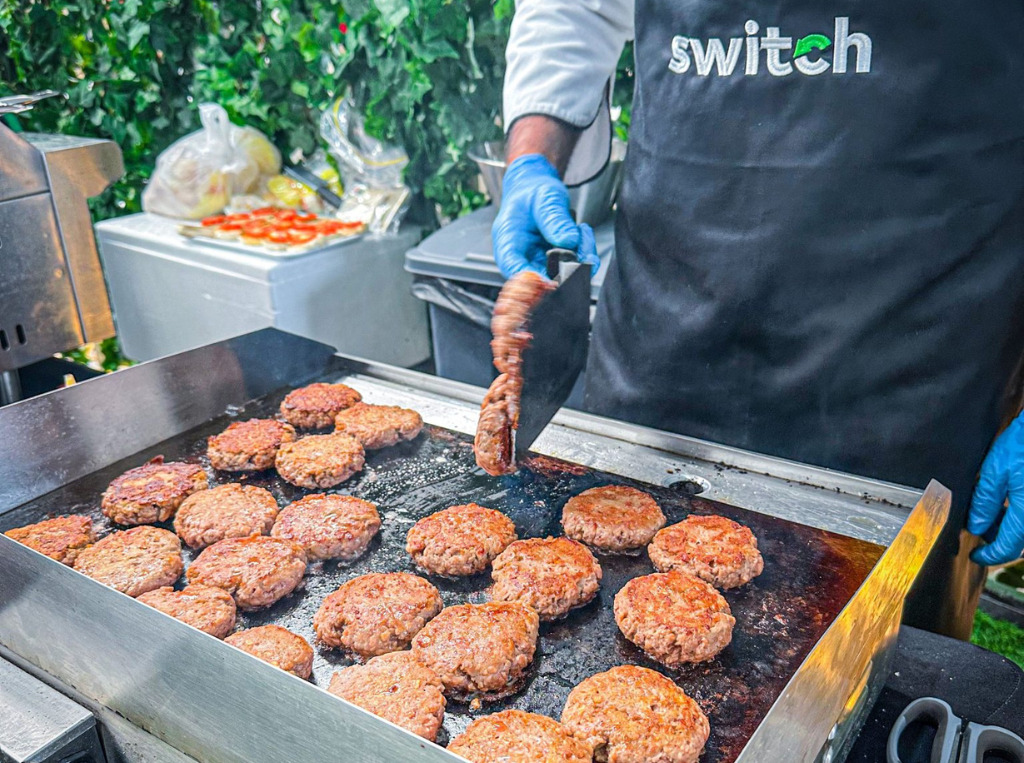Abu Dhabi Announces Alternative Protein Economic Cluster to Boost Food Security
4 Mins Read
The crown prince of Abu Dhabi has approved a new economic cluster for novel foods and alternative proteins to tackle food insecurity and water shortages.
Abu Dhabi has launched the AgriFood Growth and Water Abundance (AGWA) hub, an economic cluster built to advance the production of novel food and ingredients, and technologies that increase access to and better utilise water resources.
Announced by the Sheikh Khaled bin Mohamed bin Zayed Al Nahyan, the crown prince of the Emirati capital, the food security cluster will aim to meet increasing global demand for food and water, alleviate pressures on agricultural systems, address shifting dietary patterns, and capitalise on technological advancements to ensure a reliable and resilient supply chain.
It will be led by the Abu Dhabi Department of Economic Development (ADDED) and the Abu Dhabi Investment Office (ADIO), which will support both local suppliers and exporters to help maximise commercial opportunities.
“The launch of AgriFood Growth and Water Abundance cluster is a game changer in our efforts to further diversify the economy, enhance innovation, and achieve objectives of the UAE food security strategy 2051,” said ADDED chairman Ahmed Jasim Al Zaabi.
Alternative proteins to help create 60,000 jobs and $25B in GDP

AGWA will help food and water industry players leverage innovations in alternative proteins, algae and reverse osmosis technologies, and enhance traditional food and water production and supply. Sheikh Khaled underlined food and water security as a national priority, stating that “smart solutions” and research and innovation projects for modern agriculture are crucial for both the local economy as well as sustainable development.
The AGWA is said to be tapping into an AED77.4 trillion ($21T) industry, and is expected to contribute AED90 billion ($24.5B) in additional GDP to the city’s economy by 2045. The cluster will also create 60,000 new jobs by this time, with an anticipated investment of AED128 billion ($34.8B).
“Abu Dhabi has been exploring sustainable solutions to food production challenges since [the] late 1960s,” said Al Zaabi. In 1969, UAE founder Sheikh Zayed set up the first network of greenhouses on Abu Dhabhi’s Saadiyat Island, which featured “advanced technologies of that era” for more sustainable food production.
“Our recent initiatives continue this legacy of long-term vision and commitment to innovation, sustainability, and inclusive socio-economic development,” he added.
The development follows the UAE’s announcement of its latest food and agriculture strategy last September, which aimed to boost the industry’s value to $10B and create 20,000 jobs by 2025. A few months earlier, Abu Dhabi also witnessed the opening of its first exclusively plant-based meat production plant by Switch Foods.
‘Non-oil’ expansion mustn’t distract from need for fossil fuel phaseout

As a country with vast swathes of desert and limited arable land, the UAE relies heavily on food imports to meet 90% of its population’s needs, totalling $14B in 2020, according to the USDA. But as Al Zaabi alluded to, the country’s current National Food Security Strategy aims to make it the world’s most food-secure country by 2051.
While its position on the Global Food Security Index has risen from 35th to 23rd (and it tops the MENA region), the original strategy was to break into the top 10 by 2021. Nearly a fifth of its population lives below the poverty line, and according to the World Bank, 6% of its citizens are undernourished.
“Abu Dhabi’s new food and water economic cluster addresses sustainability, critical global challenges, and new investment opportunities,” said Badr Al-Olama, director-general at the ADIO. “This is the next step in achieving Abu Dhabi’s economic diversification strategy by accelerating non-oil sectors.”
Speaking of which, the UAE is heavily reliant on oil and gas, which contribute to 30% of its GDP and 13% of its exports. And while it has laid out a plan to diversify its economy away from fossil fuels and support the growth of various industries, it’s currently in the middle of a five-year, $130B plan to double its refining capacity and triple petroleum production.
Despite hosting COP28, the UAE didn’t back the fossil fuel phaseout demanded by climate scientists globally. In fact, Sultan Al Jaber – the summit’s president and the head of the UAE’s national oil company, Adnoc – went so far as to claim that there was “no science” behind the environmental efficacies of a fossil fuel phaseout, adding that it would not allow sustainable development “unless you want to take the world back into caves”.
The UAE also has the world’s third-largest net-zero-busting plans for oil and gas expansion, and many of its new fossil fuel developments are incompatible with the 2050 net-zero goals. And Adnoc – which is based in Abu Dhabi – hasn’t disclosed its emissions since 2016.
So it’s not just the expansion of non-oil sectors that will help the UAE reach its climate goals – the country also must simultaneously divest and scale back its fossil fuel operations. The preceding economic cluster, which was the first announced, focused on just that. Titled Smart and Autonomous Vehicle Industries, it is designed to make the nation a leader in “future mobility solutions” across air, land and sea transport.



